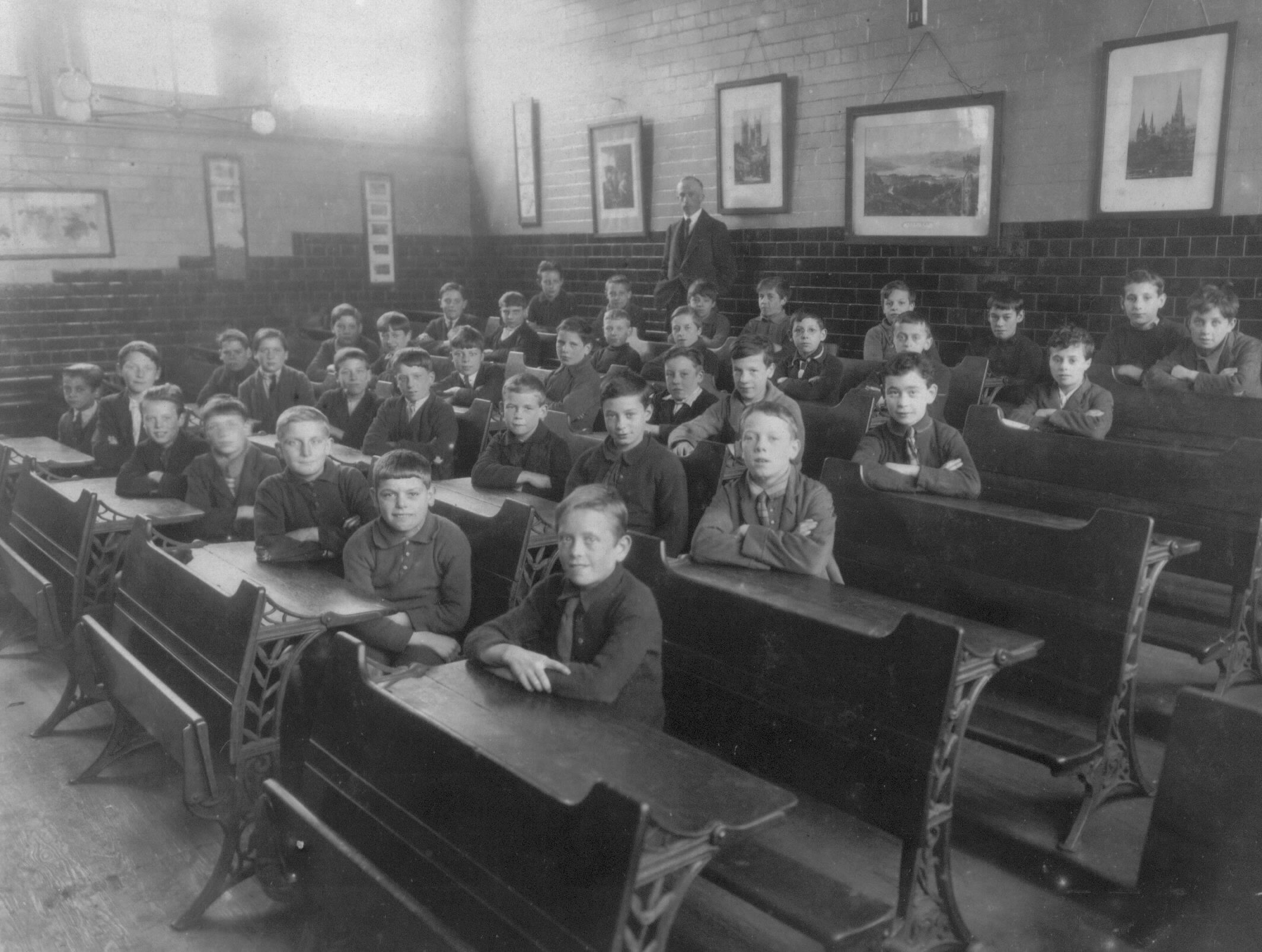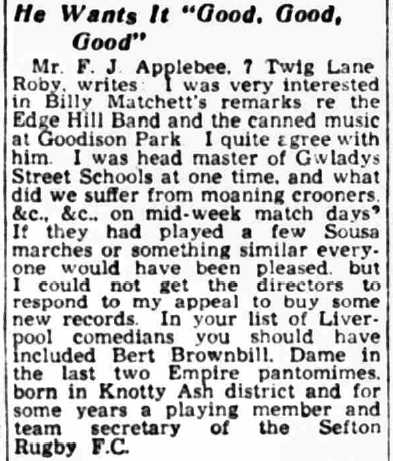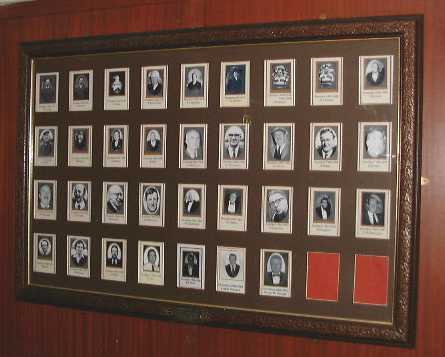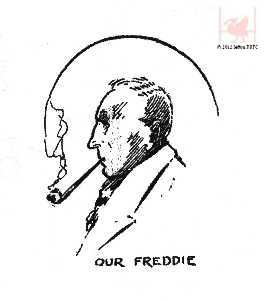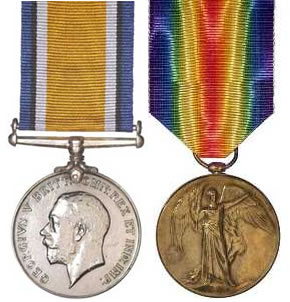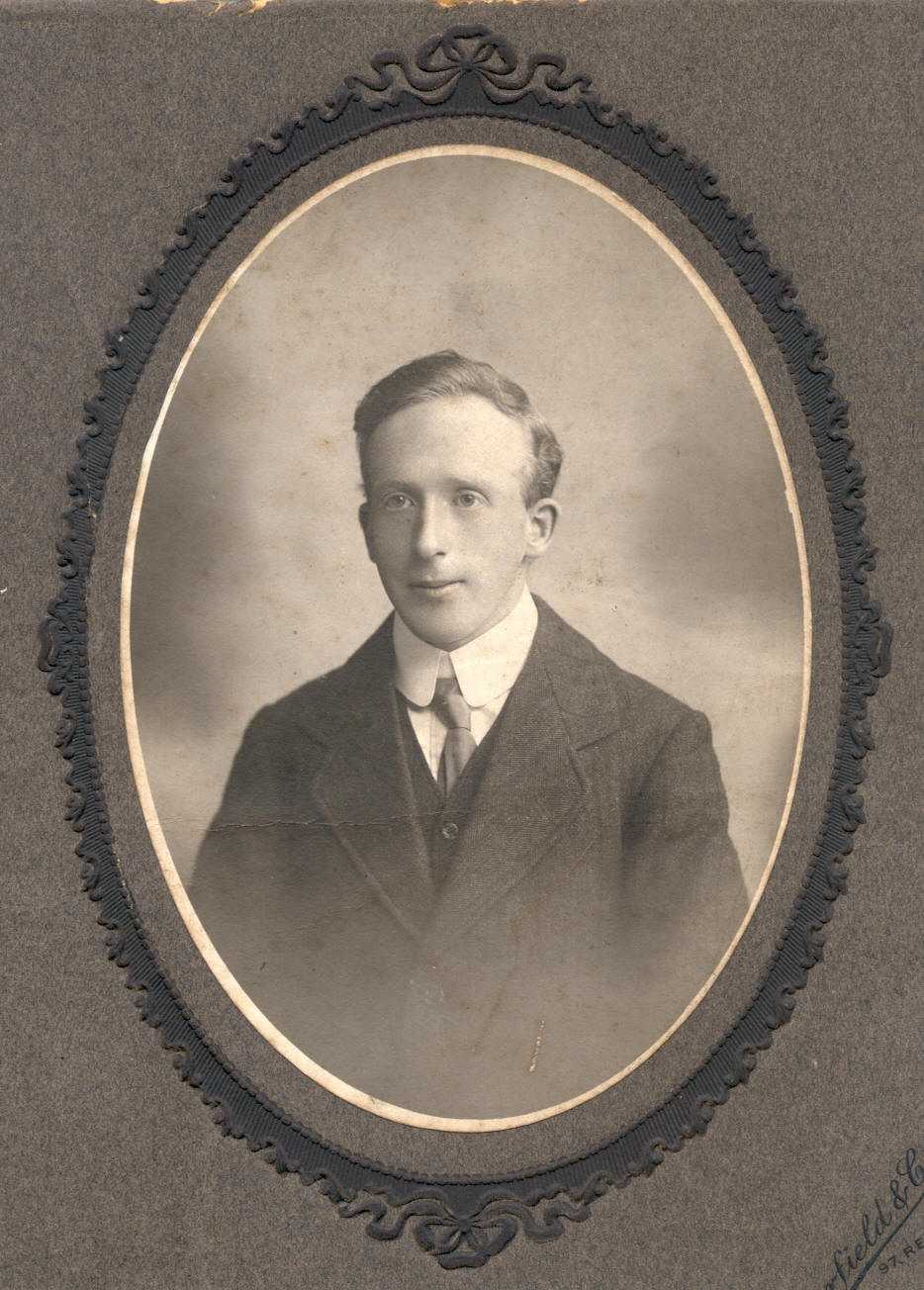
Fred Applebee recalls in 1971 - Looking back sometimes it seems only a very short time since, at tea time in our diggings at 9 Huntly Road, off Sheil Road,
I looked across the table and said to my pal Joe Fairley, “Well ! If I start a new club will you be the first to join ?”
That
is exactly how the
rugby club came into being.
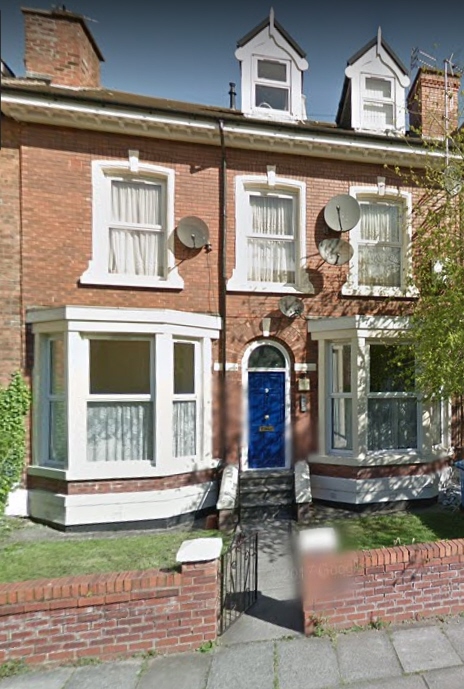
[9
Huntly Road]
On
the last Saturday of September in
1907 a raw, but keen group of
schoolteachers stepped onto the field at Lower Park, Birkenhead in
their distinctive black a lime green hooped shirts. It was probably the
first representative game for the founder members of what was to become
Sefton Rugby Union Football Club.
Fred was born in Slaithwaite, near Huddersfield in 1882 where his father was the Scripture Reader of St James Parish Church.
Fred was born in Slaithwaite, near Huddersfield in 1882 where his father was the Scripture Reader of St James Parish Church.
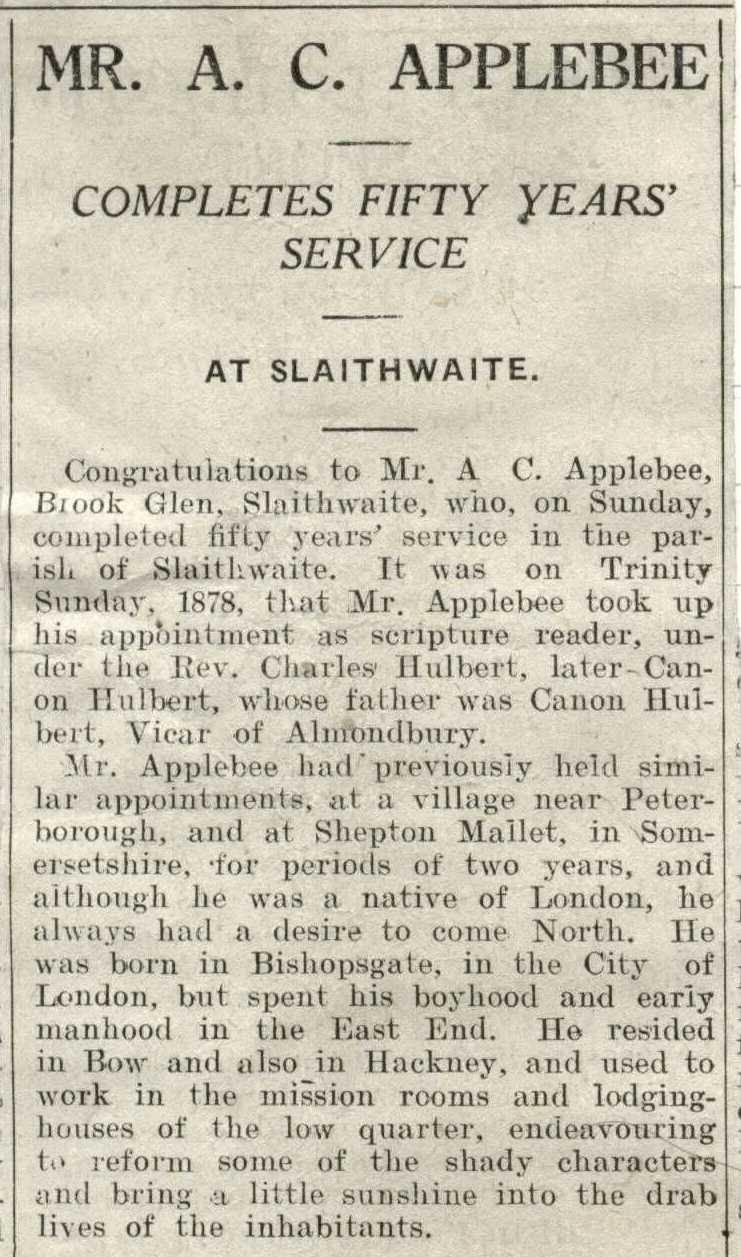 |
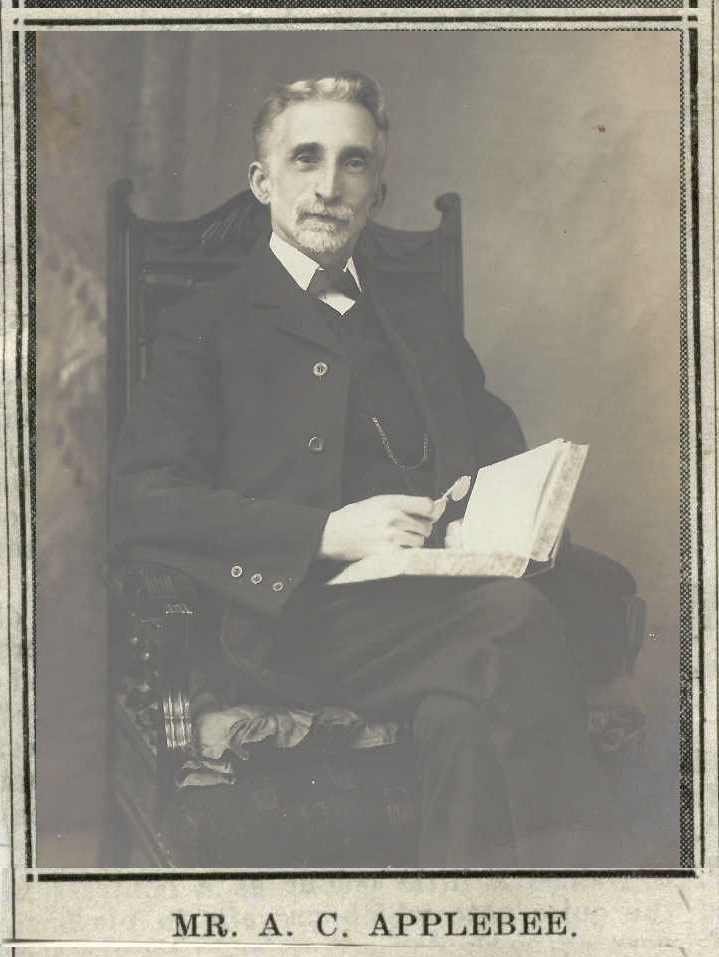 |
Slaithwaite, or "Sla-wit" as it is pronounced locally is a picuresque mill town in the Yorkshire Colne Valley, and as a child Fred must have had hijinks amongst the fields, hills, streams and dams.
The family home, "Brook Glen" looked like a terraced abode but just look at the front of the property and its vista.
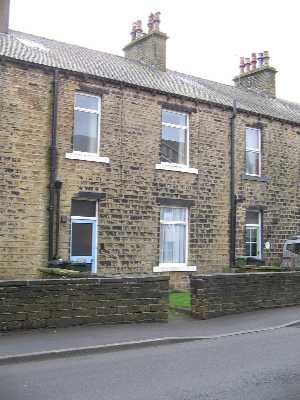 |
 |
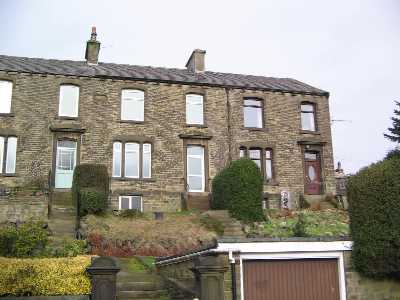 |
|
"Brook
Glen" rear door, left
|
"Brook
Glen" front door, left
|
|
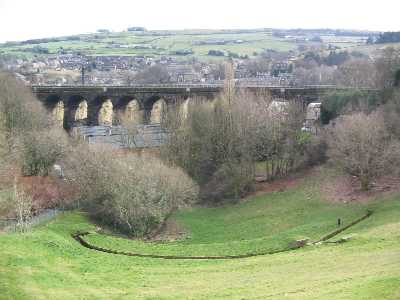 |
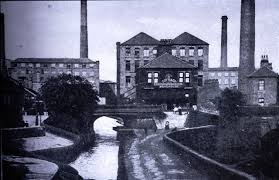 [sikes-sykesfamilies.rootsweb.com]
Local entrepreneurs decided to take advantage of the coming Industrial Revolution and in the 1860’s built a Mill. It would seem to be the perfect site with a ready supply of water which flowed from the fields & natural springs of Bolster Moor |
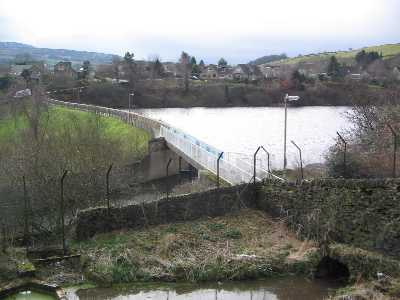 |
|
View
from "Brook Glen"
|
|
Slaithwaite
Resevoir from "Brook
Glen"
|
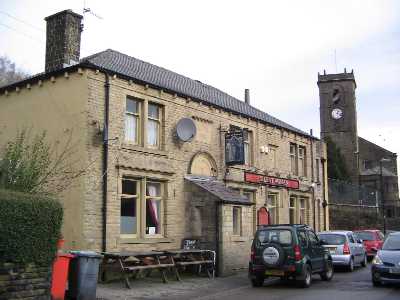 |
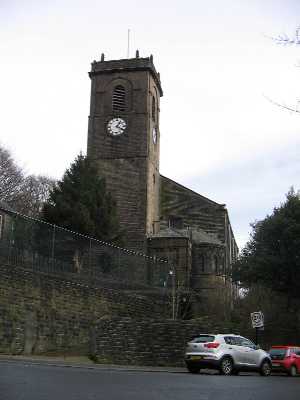 |
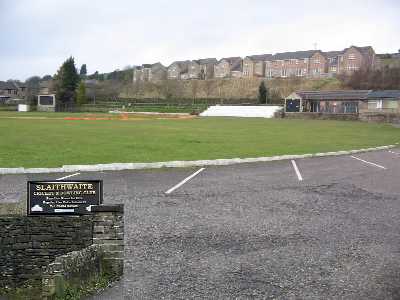 |
|
"The
Quiet Woman" pub
|
St
James Parish Church
|
Slaithwaite
Cricket Club nearby
|
Fred
excelled in Mathematics at
the first year of college in 1899.
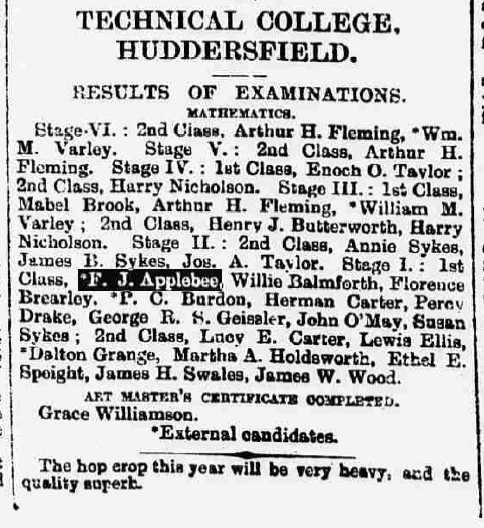
As his father was born and bred in London, and with probably lots of family and friends there, Fred had no hesitation in going to England's oldest teacher training college, the College of St John in Battersea (founded in 1838). By 1904 he was captain of the college rugby team.
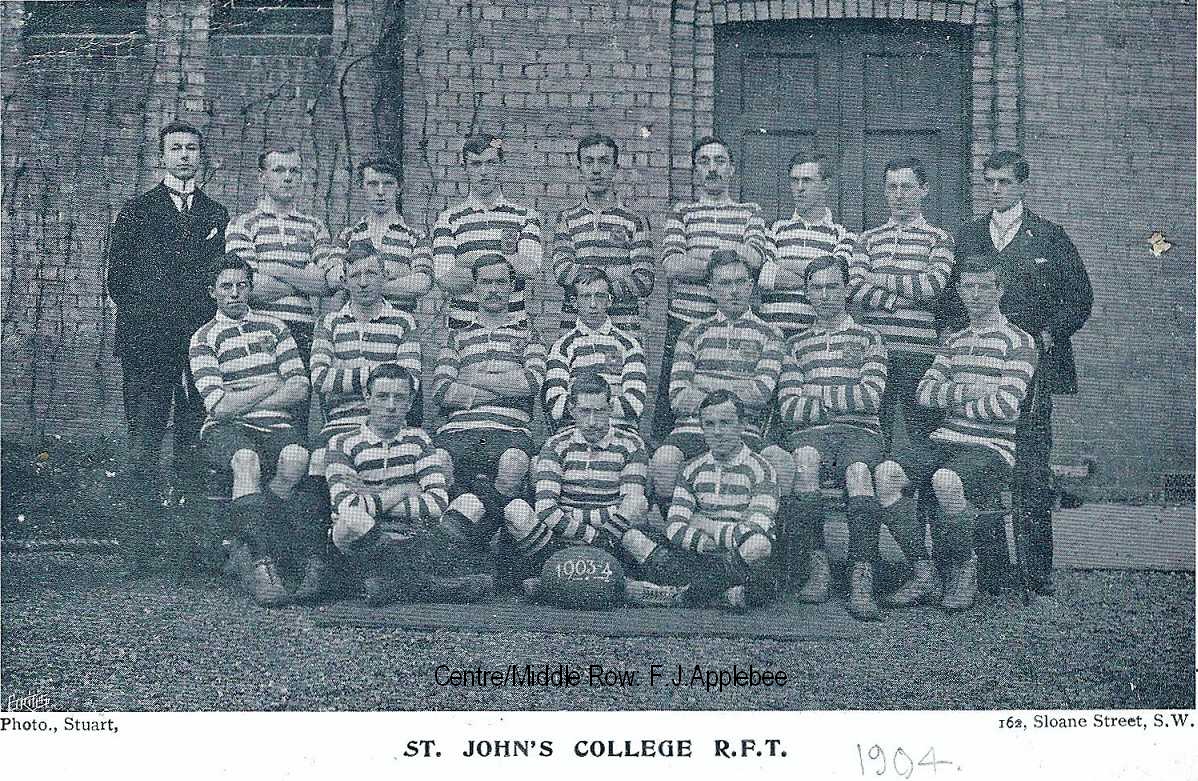
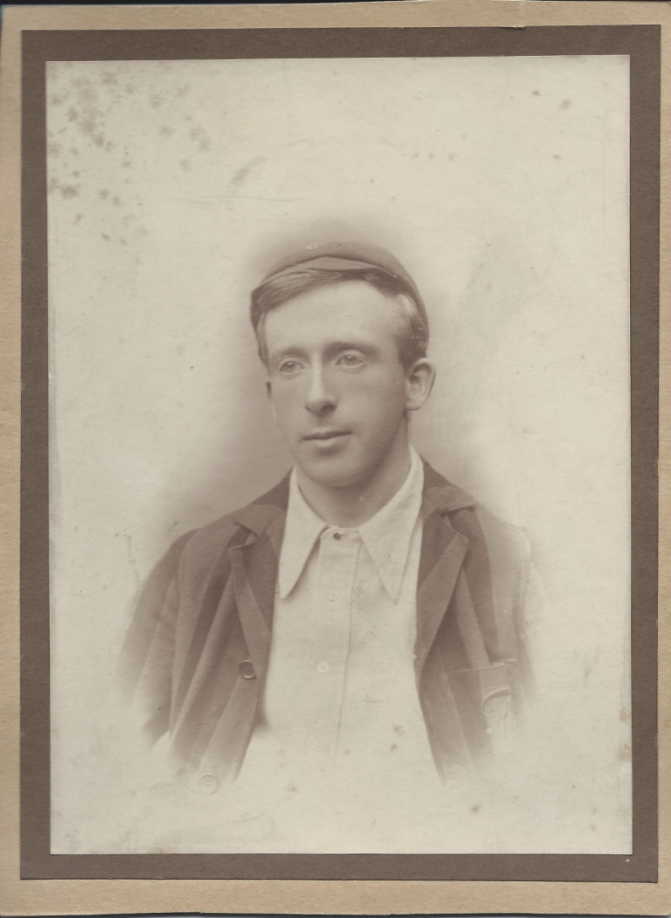
[Above photos from public member trees on Ancestry]
After
graduating from St John's he was
attracted to Liverpool as there was a chronic shortage of teachers and
good pay as well. He taught at Anfield Road School.
Eager to continue playing rugby he coerced a group of schoolteachers to form a team in 1907. At the inaugural meeting it was discovered that of all those present, not one was Liverpool born. Some wag suggested that the club should be called "The Aliens" and the name was adopted.
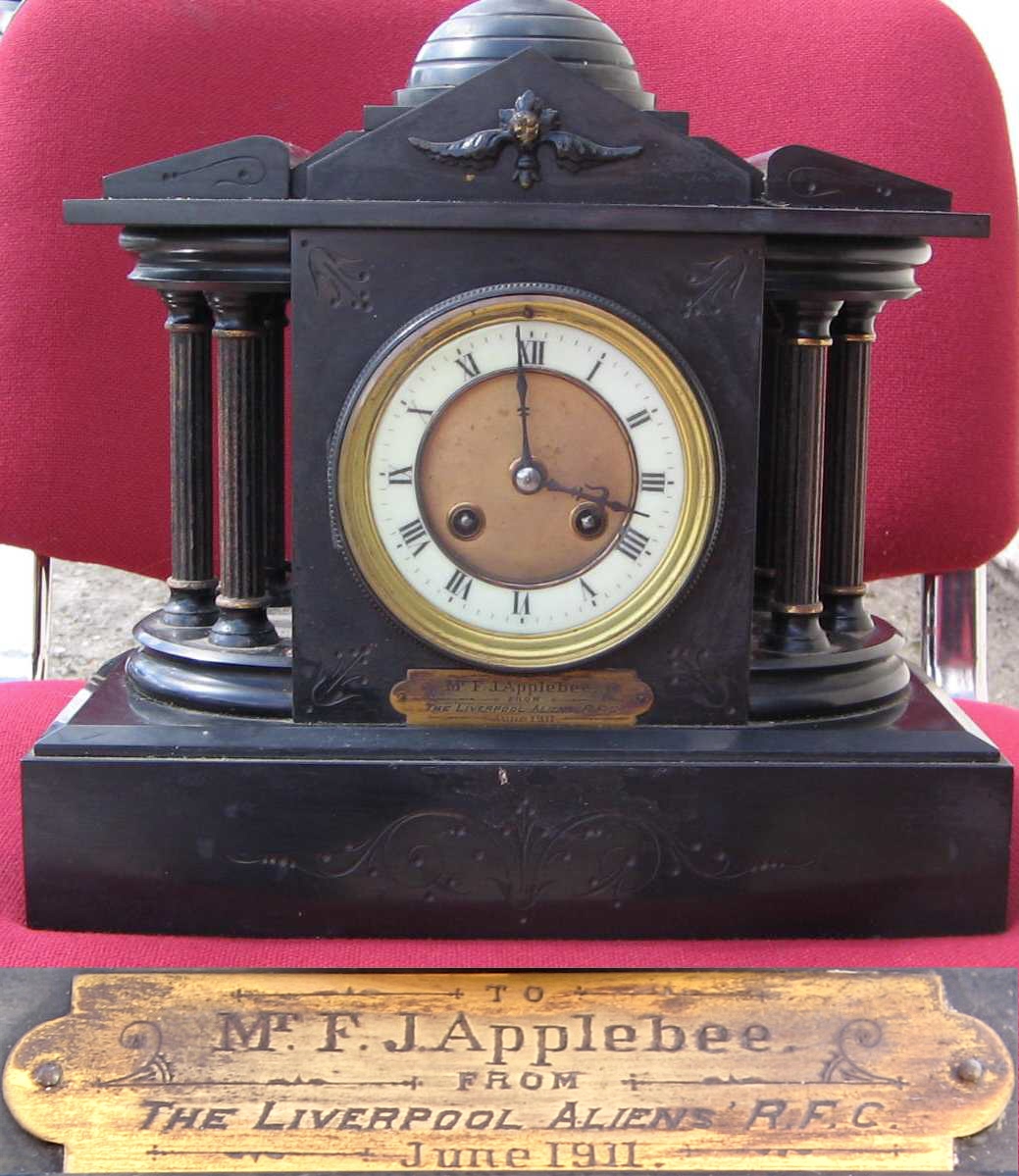

Eager to continue playing rugby he coerced a group of schoolteachers to form a team in 1907. At the inaugural meeting it was discovered that of all those present, not one was Liverpool born. Some wag suggested that the club should be called "The Aliens" and the name was adopted.

Fred
returned to Barkisland,Yorkshire for his marriage
in 1911,
notice his best man was Joe Fairley
(what a choice for a new wife too, dad's an Inn Keeper !)

Fred's
schoolkids gave us great
insight into his military career in the
Great War.
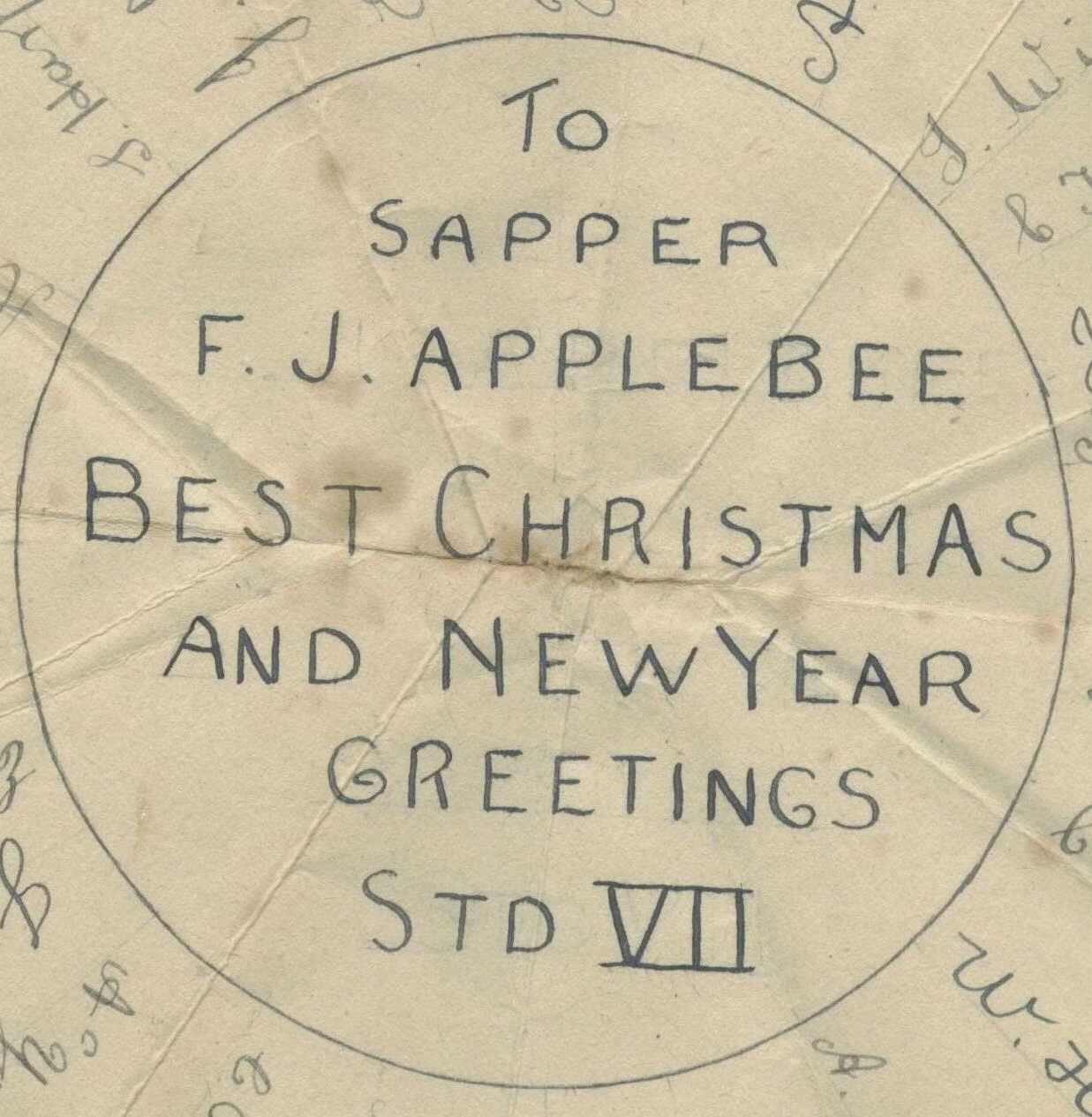
Fred
served with the Royal Engineers
and left for European theatre
after December
1915, he received the British War and Victory medals.
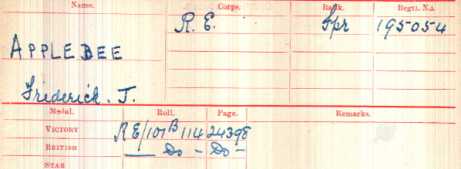
All playing activities ceased between 1914/15 and 1918/19, but on 1st April, 1919, a number of the old players decided to make an effort to restart, and despite great difficulties in securing a suitable ground, and with only eight members definitely available, fixtures were arranged for the 1919/20 season. Membership rapidly increased, mainly due to an influx of old boys of Liverpool College, and the succeeding seasons were ones of steady expansion. At a General Meeting held on August 31st, 1920, it was unanimously decided to change the name of the Club to "The Sefton Rugby Union Football Club," and after playing on grounds in Deysbrook Lane and Eaton Road, a ground was secured in Meadow Lane, where the Club remained until it acquired its present ground in 1929.
Of those members who decided to restart in 1919, only Mr. W. B. Croxford, who joined the Club in 1911, and Mr. F. J. Applebee, one of the original founders, are still actively interested in its affairs. Mr. Applebee was Treasurer from then until the end of 1933/4, and a Committee man until the end of 1938/9. Their efforts were mainly responsible for the acquisition of the present ground, but they received the active support of all members and the numerous social activities carried on provided the nucleus of the purchase price of the ground and pavilion. In these years, five XV's were being turned out regularly each week, the Club meeting most Lancashire Clubs, and, when it acquired its own ground, it had reasonable expectations of attaining first-class status. However, the spread of the game in the district resulted in the formation of many flourishing Old Boys’ Clubs, whose advent was welcomed, but whose activities severely restricted the sources from which the Club had drawn its playing membership, and it was only by teaching newcomers the game that it was able to maintain its membership, although the change over from Soccer to Rugger at Oulton School, in which the Club had taken an active interest, eventually eased the position.
The rich history of the Aliens RFC is available today due to the meticulous efforts of Secretary and founder member Fred who recorded Committee minutes, fixtures, results, players statistics and preserved the newspaper cuttings of the games.
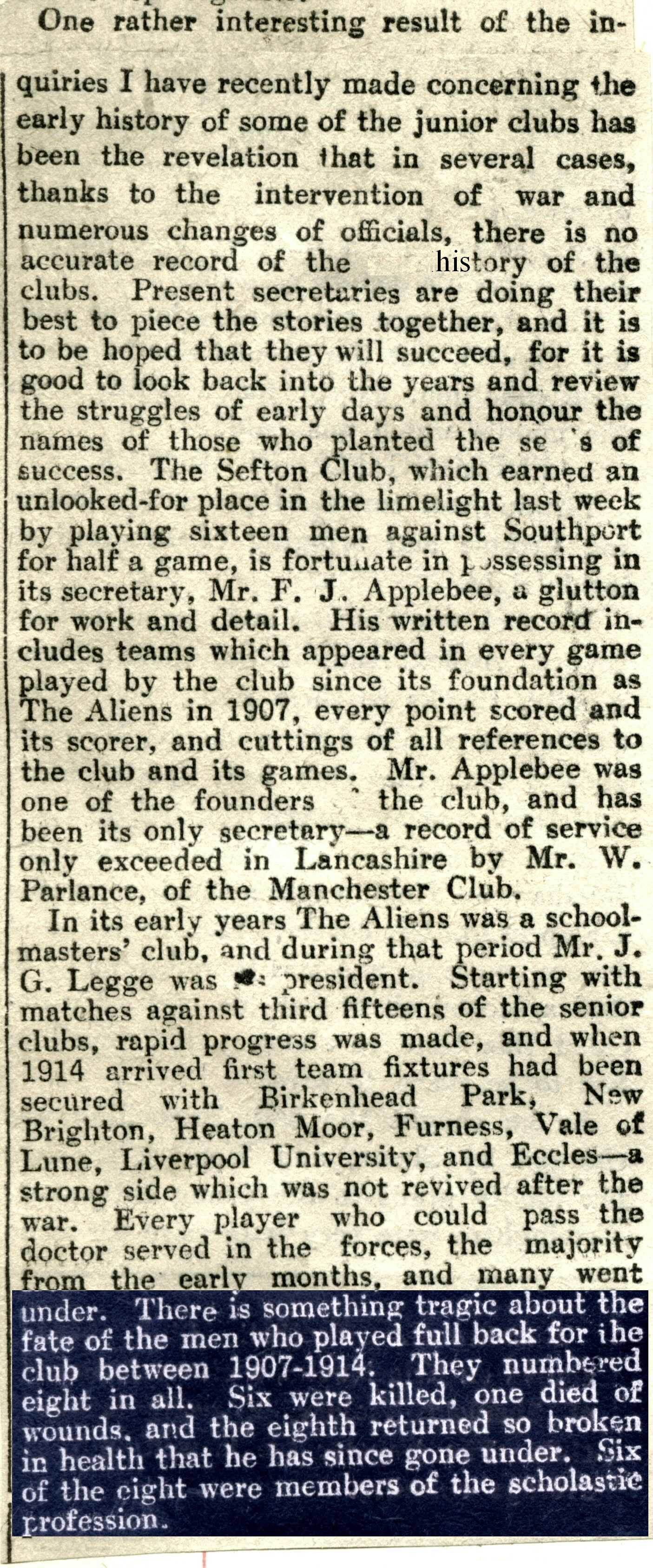
Fred
played cricket with a lot of his
rugby chums at Clubmoor Cricket
Club, off Maiden Lane where the Aliens originally had their ground.
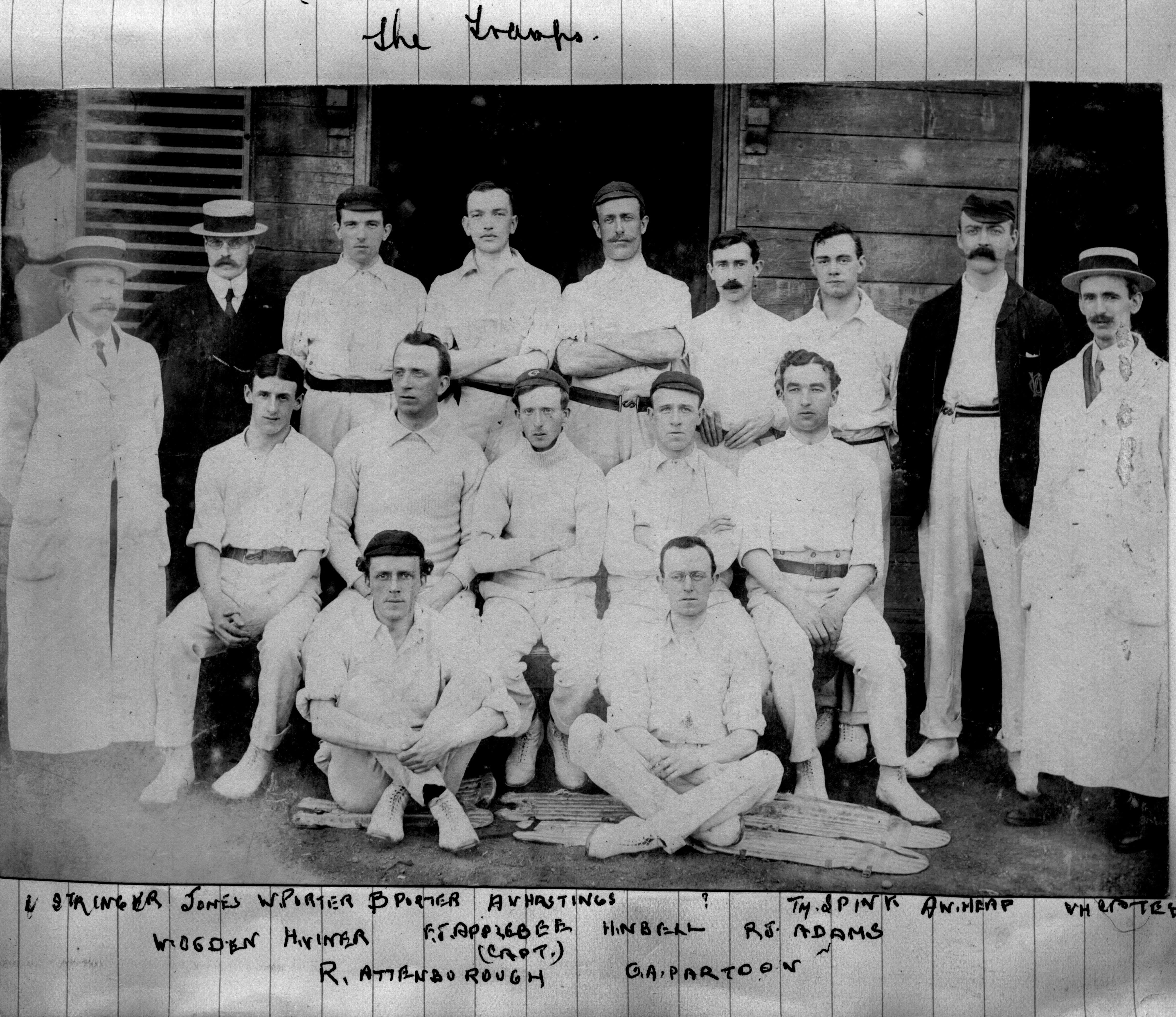
He
continued the post until 1926 but
was a majestic servant to Sefton
RUFC for decades to follow. They celebrated the retirement at Ye Hotte Potte.
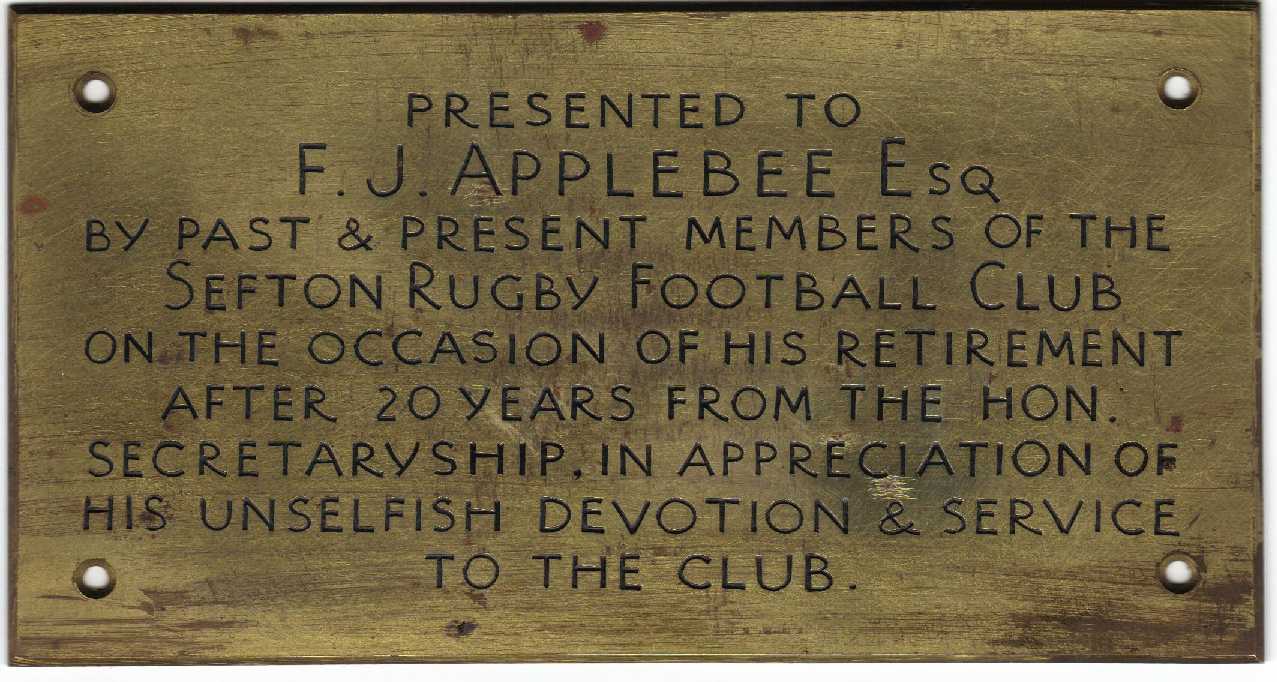
Fred
was badly injured in a car
accident in 1932.
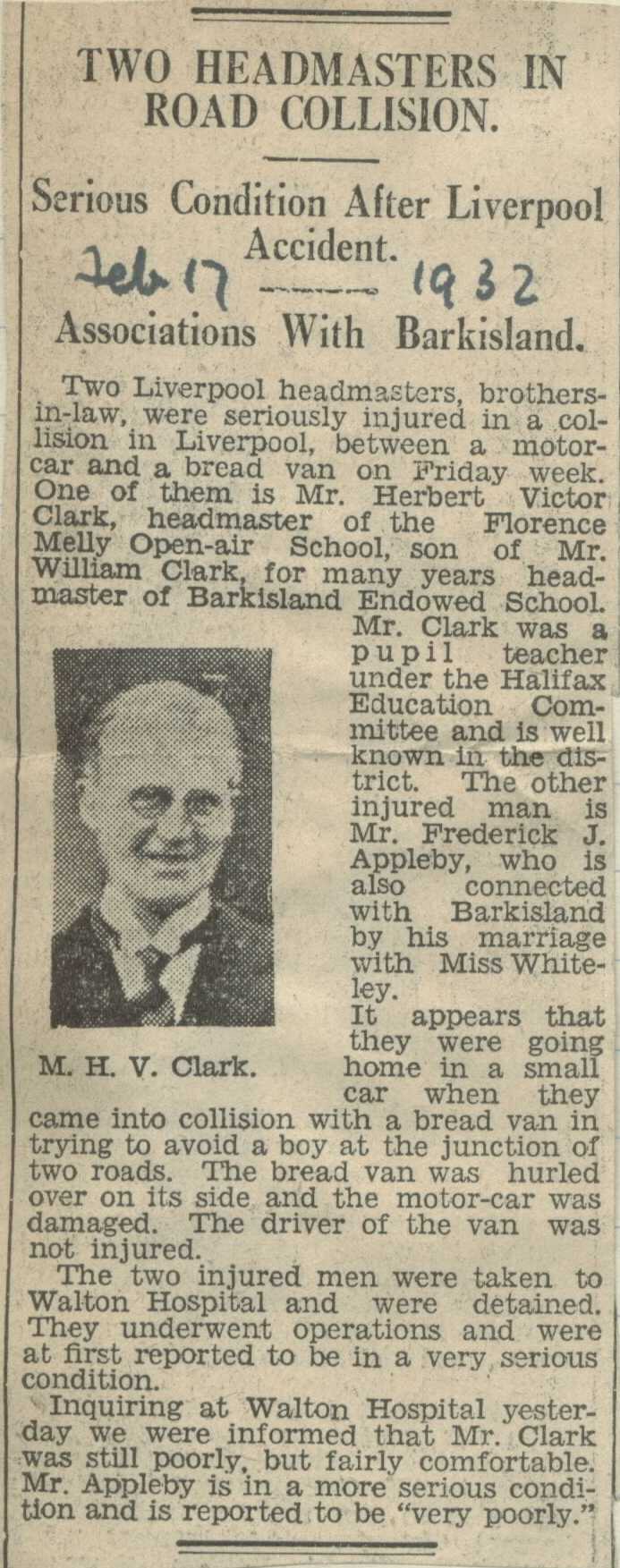
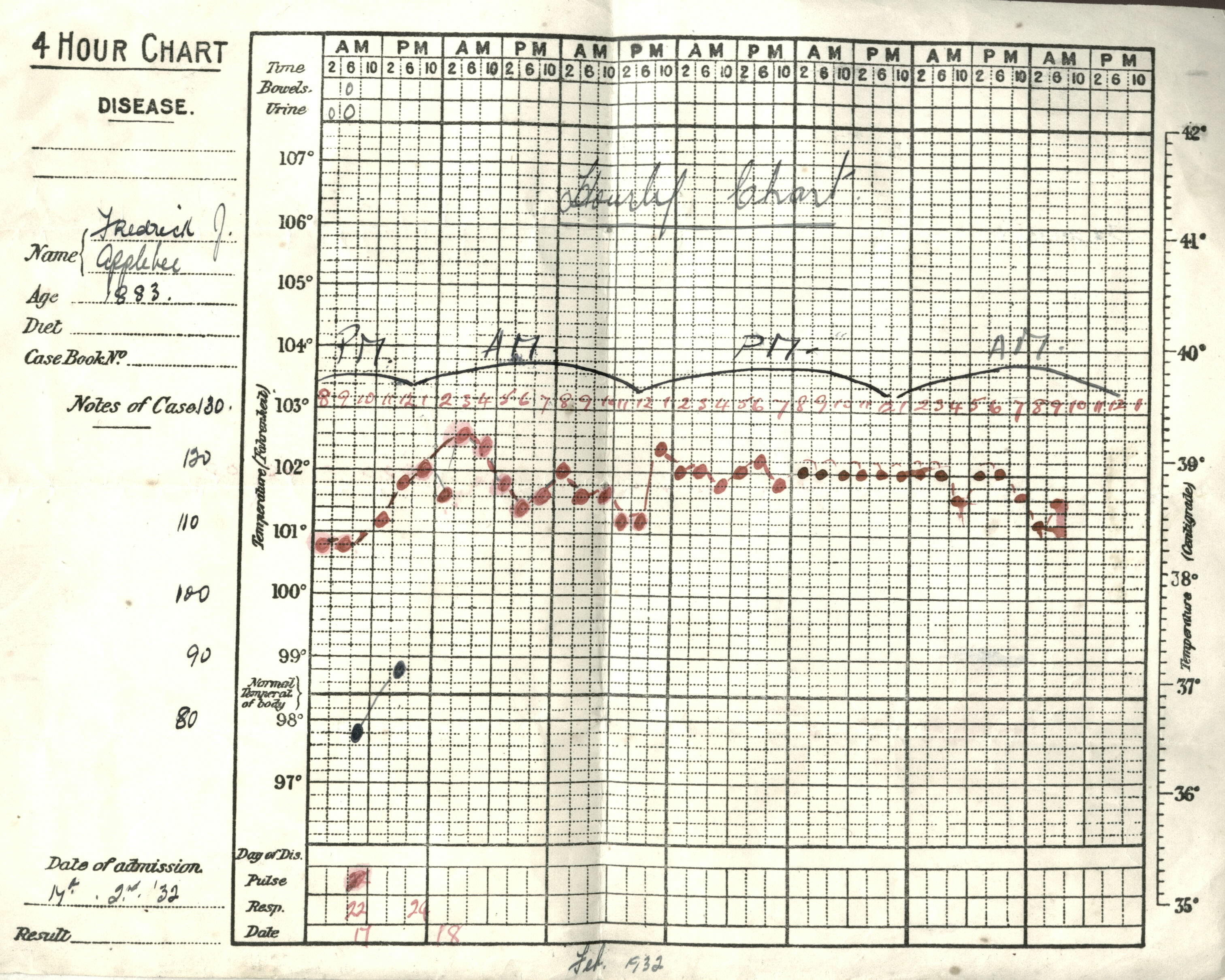
As
ever, a strong mind is important in
recovering from trauma, here he is back at the wheel of his class at
Anfield Road School.
Club
Handbook
September 1949
The period from
1933-4 until the outbreak of the second war was one of anxiety as
considerable difficulty was experienced in meeting the running expenses
and the financial commitments entered into to repay
the annual instalments of the loan received from the Rugby and
Lancashire County Unions. Prospects for 1939/40 were favourable, but
once again war put a stop to playing activities.Most of the players were in the forces, and the ground was requisitioned as a gun-site, the Club's interests being left in the hands of its Trustees, Messrs. F.J.Applebee, W.B.Croxford and H.A.Munro. [Fred was evacuated to Wales with his schoolkids in Operation Pied Piper]
After the end of the War, prolonged negotiations resulted in sufficient space being secured on the ground for one pitch, and in 1945/6, with a few of the pre-war players, a fresh start was made. Despite the handicaps of a ground, which, from a playing point of view, had been rendered almost impossible by the requisitioning, and the advent of "squatters" in the pavilion, reasonable, if slow, progress was made. Membership has increased, and although the results have not been good in the three seasons since the war, a good club spirit has existed, and the latter half of 1948/9 season, playing results were much improved.
Difficulties have by no means disappeared, but negotiations for the restoration of the ground are being carried on, and, it is hoped, will be successfully concluded in the near future. The Club is now, however, as it has always been in the past, in the hands of its playing members and of those former players who have continued their active interest. It can only continue to exist if every player fulfils his obligations by turning out regularly for whatever team he is selected, by paying his subscription and by doing all he can, financially or in other ways, to support all the activities entered into for the benefit of the Club.
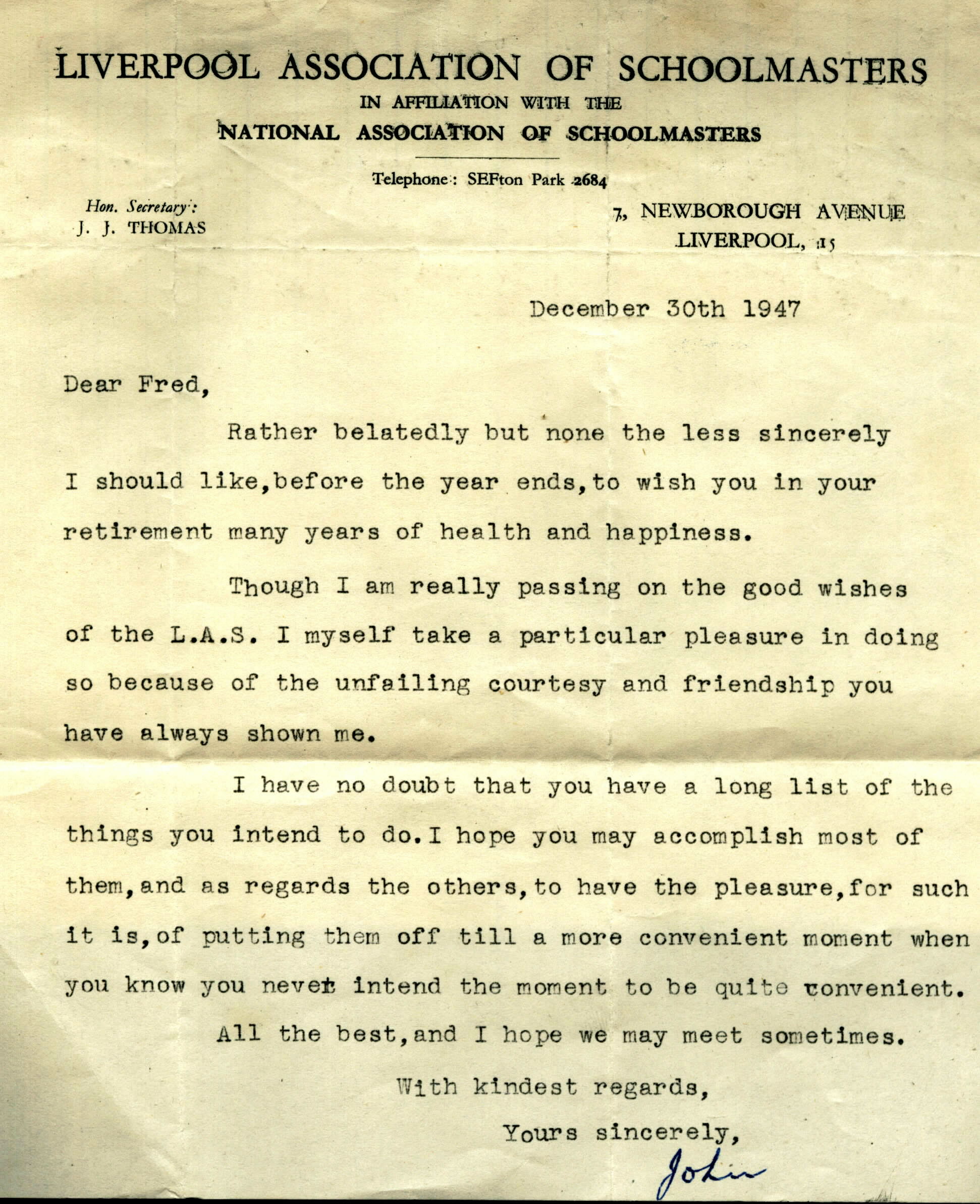
[Fred's
retirement in 1947]
Fred
was an ardent newspaper reader
and often had his letters and
observations printed.
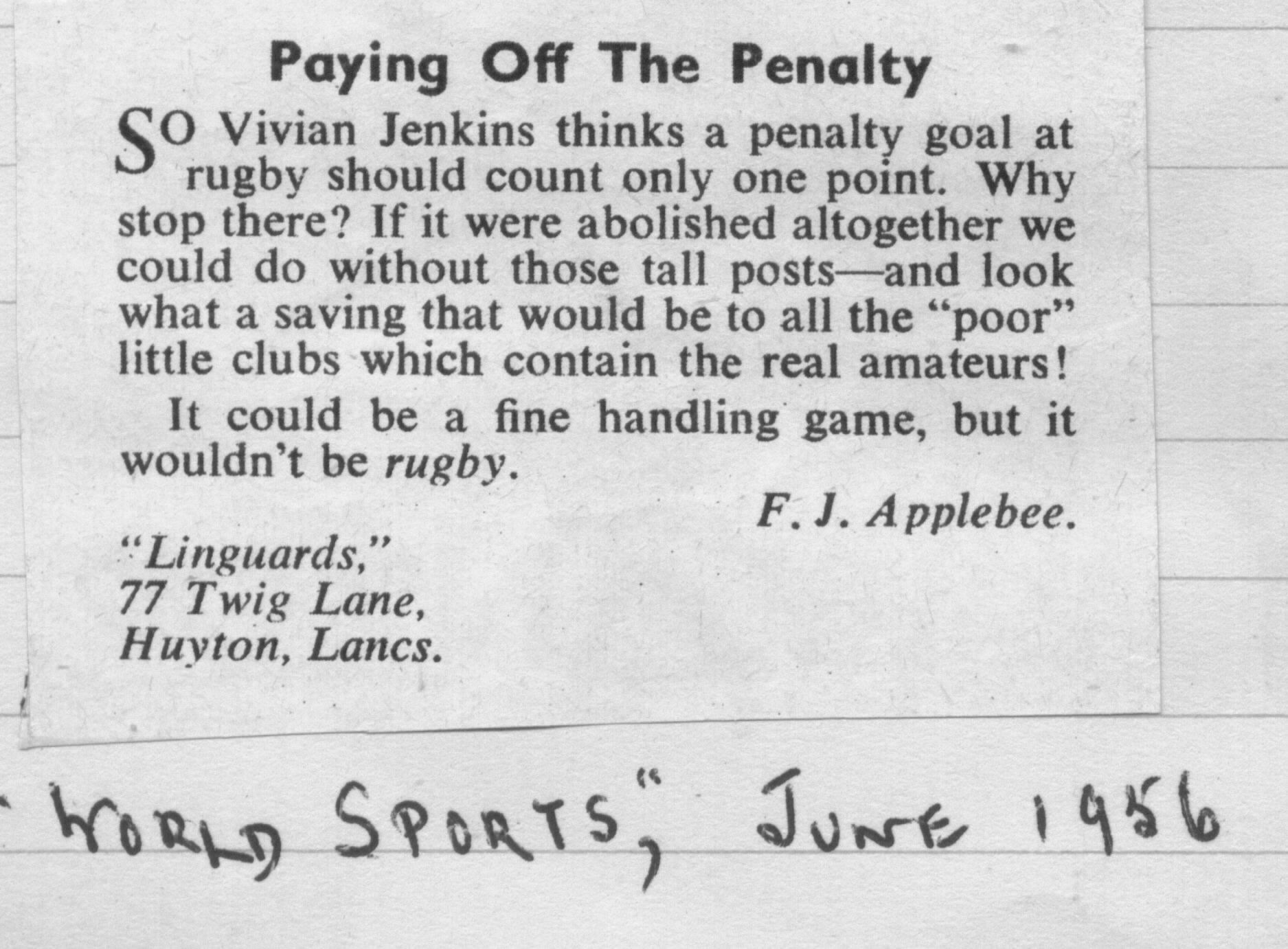
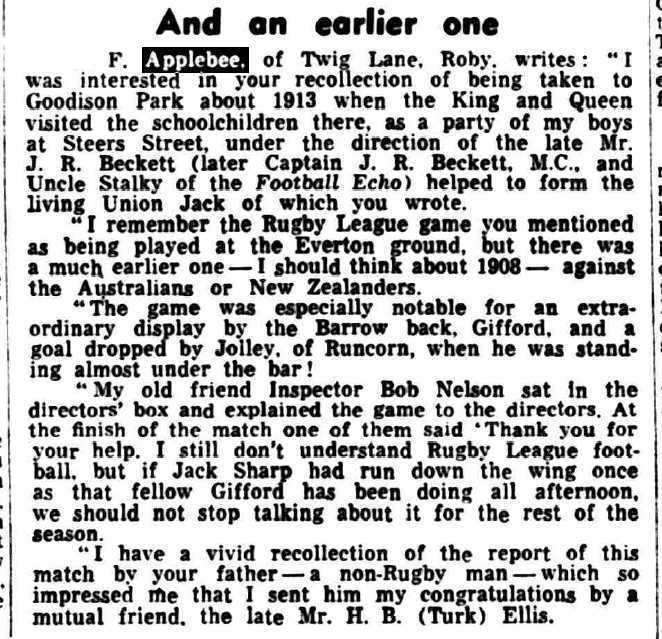
Liverpool
Echo 18th May 1964
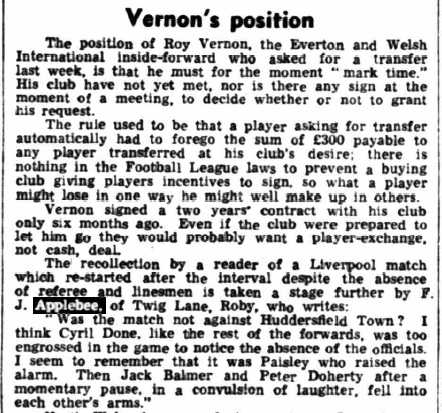
Liverpool
Echo 5th Jan 1965
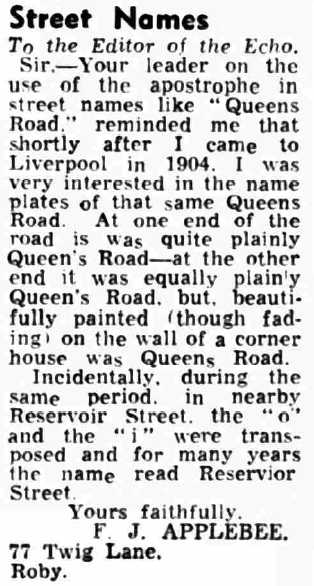
Liverpool
Echo 11th Oct 1966
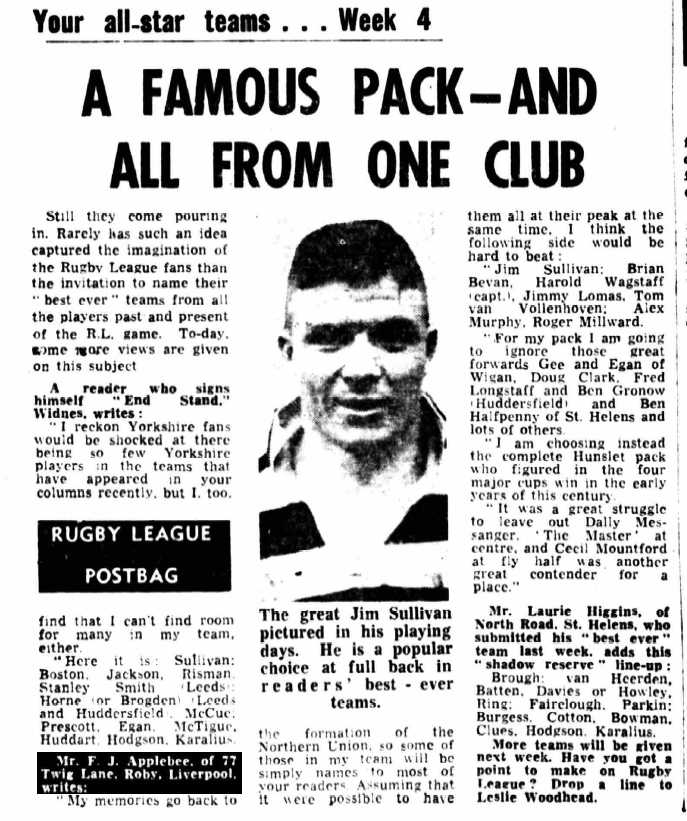
Liverpool
Echo 25th Nov 1967
In
the 1950's Fred's son David
followed in his footsteps and also played rugby,
at first for Hightown and Sefton, then on to St Helens (before they
merged with Liverpool).
He was also a spirited distance runner for Waterloo Harriers.
He was also a spirited distance runner for Waterloo Harriers.
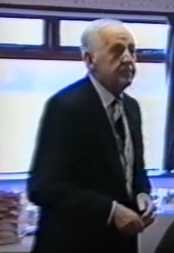
[David
C. Applebee b.1924 d. 2017]
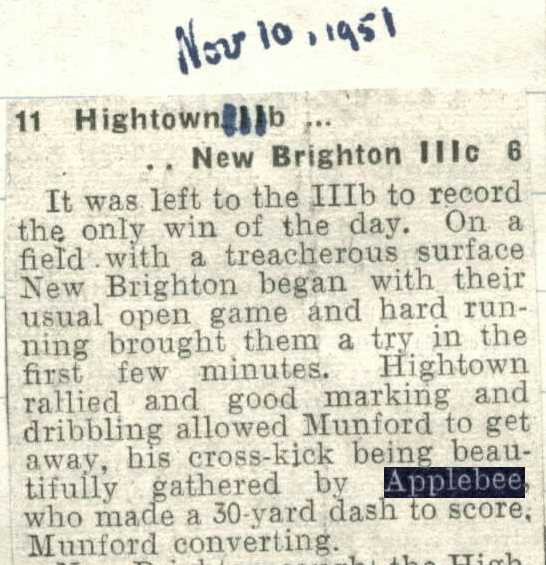 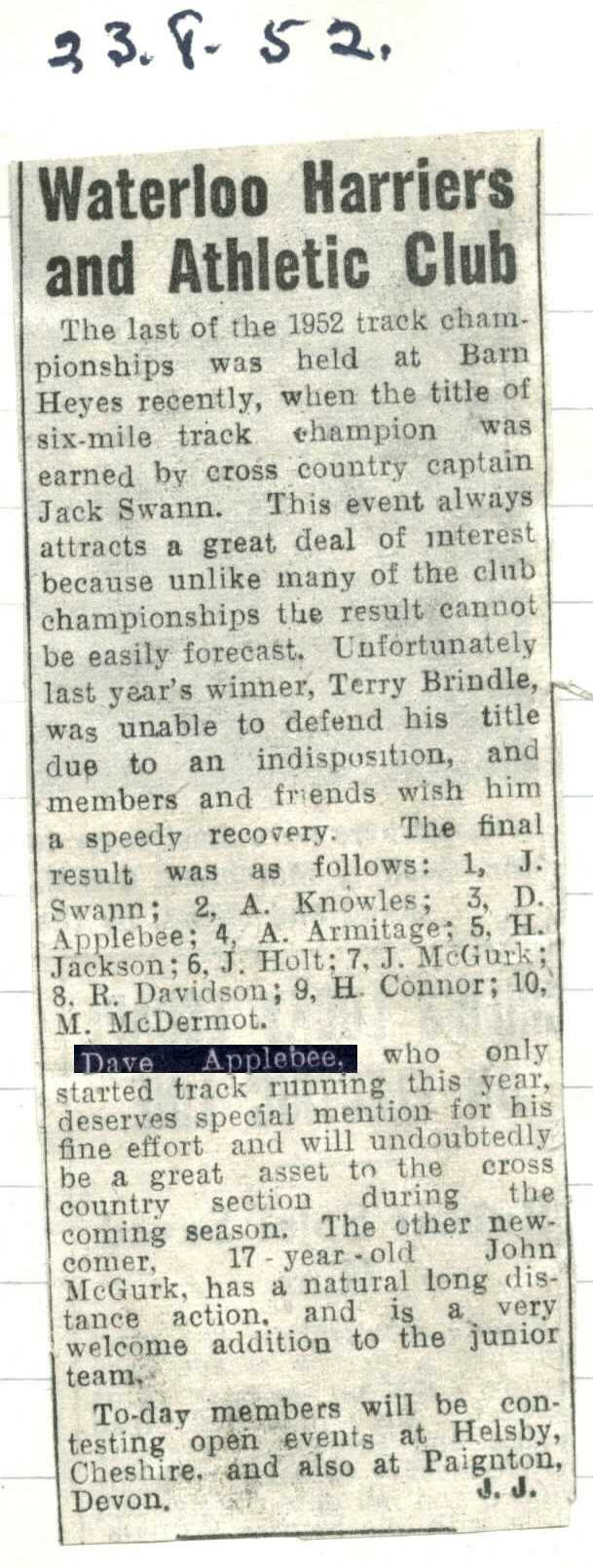 |
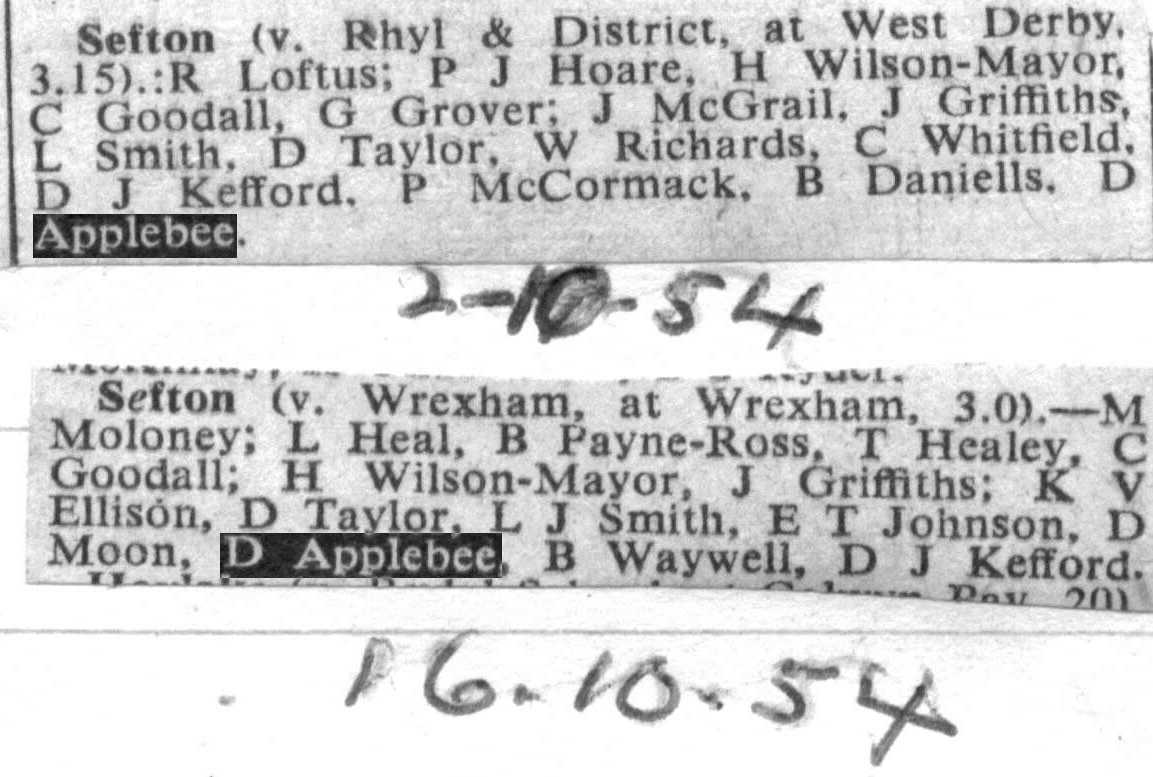 |
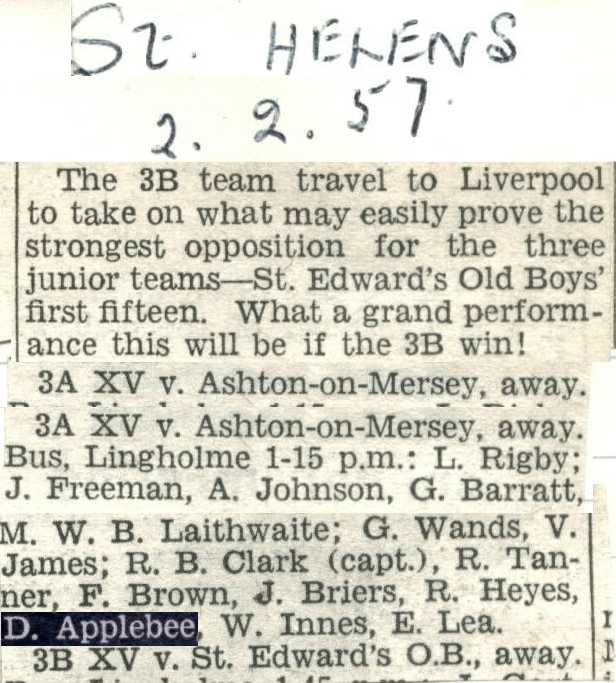 |
